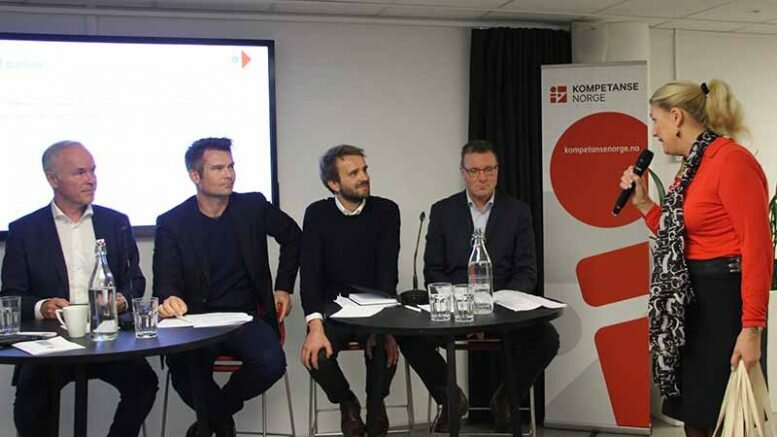The struggle for increased competence in Norway
Competence Norway (Kompetanse Norge) recently held a Breakfast Seminar regarding the struggle for competence in Norway.
– Developing your own skills must be possible for all, regardless of whether you have a job or need to qualify for work. Director in Competence Norway, Gina Lund, says at the Competence Breakfast regarding the need for skills in the future.
– Competence policy must embrace the entire population – those with weak basic skills, those who don’t master the Norwegian language, those who need further education, career guidance or real competence assessment, she emphasises.
The theme for this year’s latest Breakfast Seminar is the struggle for competence and how to ensure that Norway possesses the skills needed.
– We see that it is more important with formal competence today than before. It is not without reason that it can increasingly be compared to the struggle for existence.
Lund points to the lowest proportion of people in the workplace in more than 20 years, and that lack of expertise contributes to exclusion from or weak inclusion and integration in the society. And if you are employed, it is the ones with the lowest education levels who also participate in the development of skills the least. Additionally: If you are out of work, you lose an important arena for developing needed skills. This can gradually increase the distance to the workplace and the outside world as such.
The struggle for increased competence
At the same time, this is the struggle for increased competence. Helene Ytteborg in the secretariat of the Competence Needs Committee (KBU) emphasised in her presentation that the level of skills in Norway is generally good but could be even better.
– We have a high level of education, but to many have gone through primary school only. There are significant recruitment problems for some professions, especially in the health and social sectors. There are also major regional differences in terms of competence needs, she implores.
See the entire presentation (pdf).
Flexible education and industry programs
The panel consisted of the Norwegian Minister of Knowledge and Education, Jan Tore Sanner (Conservatives), Chief Economist in LO, Roger Bjørnstad, Department Manager for Competence and Innovation in NHO, Rune Foshaug, and CEO of Vestre AS, Jan Christian Vestre.
The Minister of Knowledge pointed out that the discussion about lifelong learning is not new, but that the backdrop is different.
– The need for added competence and change in tasks throughout the workplace will grow much larger in the future. I see this as a discussion of how we can secure both economic and social sustainability in the time to come.
He referred to the announced Competence Reform where the Norwegian Government are taking action already is in effect, including the development of flexible additional education in digital skills and industry programs for the vulnerable industries.
Too slow
CEO of Vestre AS, and before this Labour Politician, Jan Christian Vestre, believes that things move too slow:
– I am seriously concerned that it is moving too slowly at present. Our main challenge is that we are still living in a world where we have created an education system based on the idea that when you have finished your studies you are fully trained and have obtained everything you need to succeed in working life. Until we manage to create an integrated education system that takes into consideration that you are never fully trained, making it both a right and an obligation to increase competence along the way, I’m afraid we will be here talking about the same issue in ten years time.
View the debate on this Facebook page.
© Kompetanse Norge / #Norway Today





